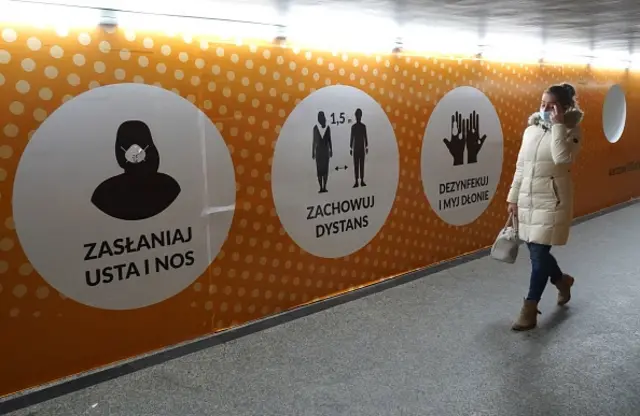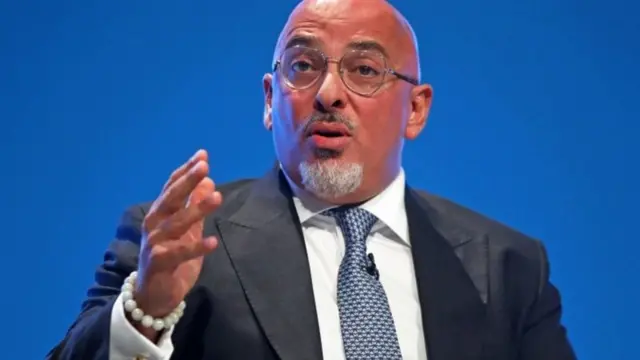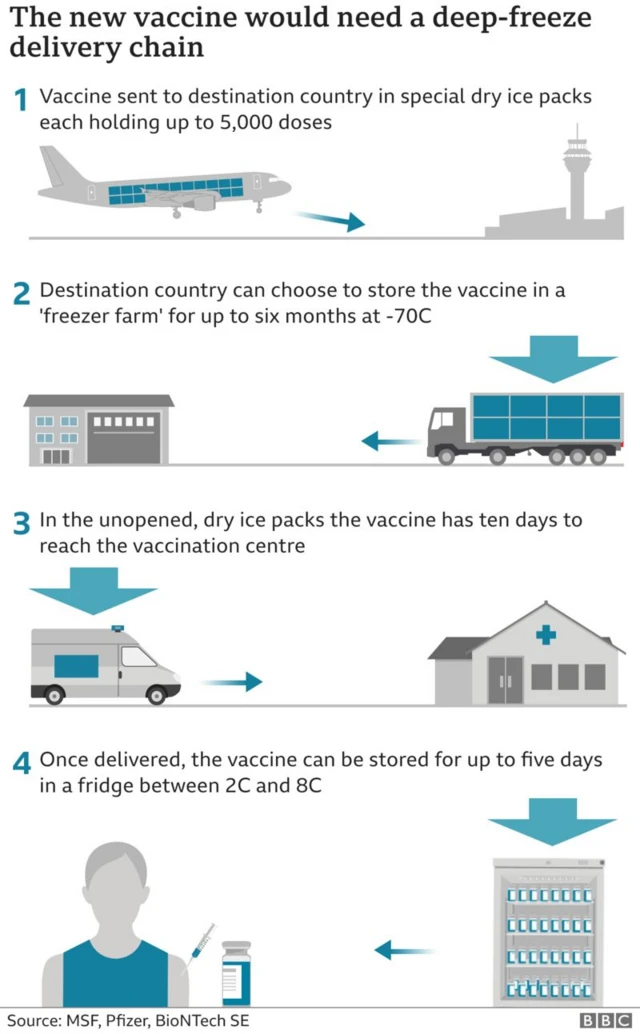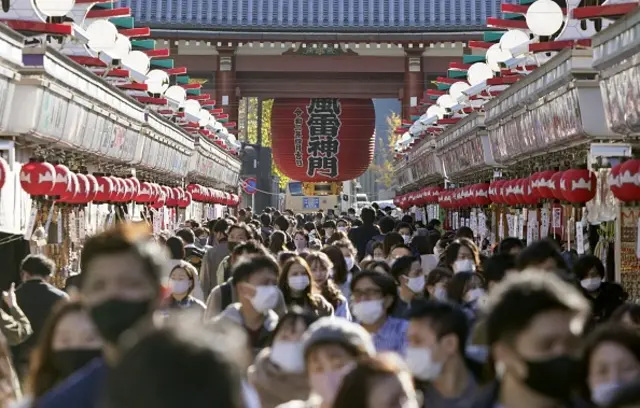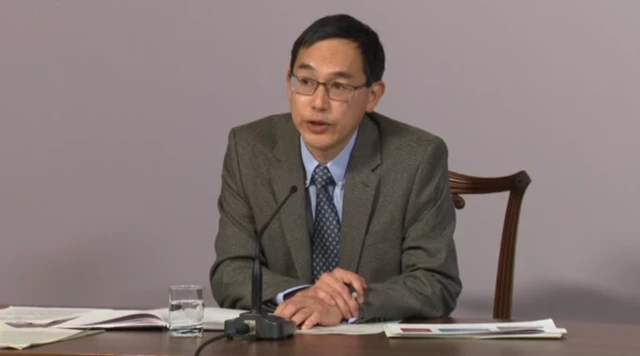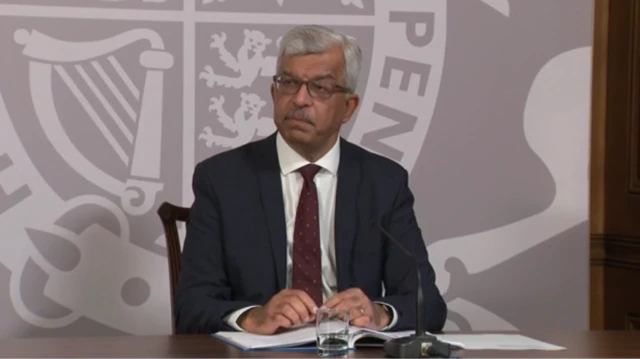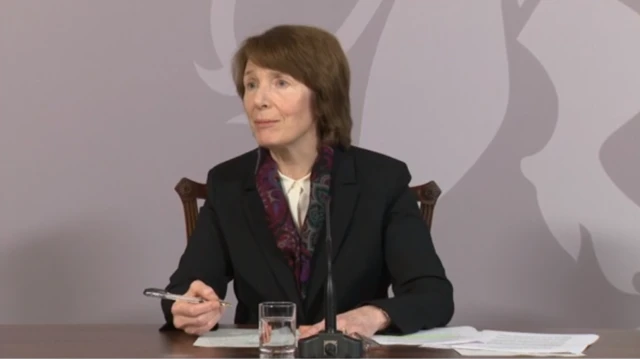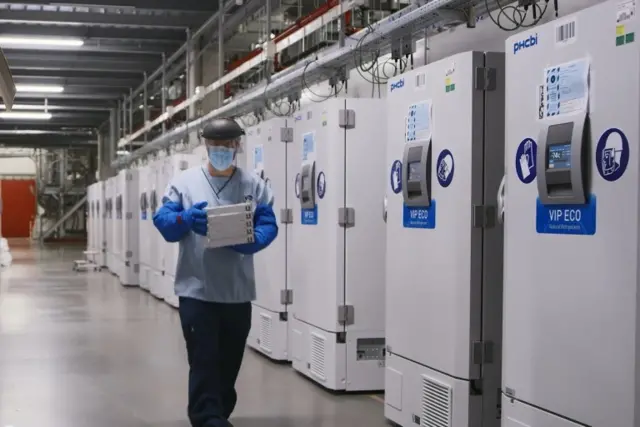Don't get hopes up too soon over vaccine speed - PMpublished at 12:22 GMT 2 December 2020
Keir Starmer says there are more than 400,000 people in the top priority groups identified by the prime minister, meaning they won't all be vaccinated next week.
He asks when people in the top two priority groups will get the jab.
In reply, Boris Johnson says the UK will roll out the vaccine "as fast as we possibly can" when millions of doses are delivered.
But he says it is important people "don't get their hopes up too soon" about the speed it can be rolled out.
Starmer also raises concerns that delivery of vaccines into care homes will be difficult due to temperatures of -70C at which the vaccine must be stored.
Johnson acknowledges there are "logistical challenges" but says his government is working to distribute the vaccine as fast as possible to vulnerable groups.
He adds that it is also important to get the Oxford University vaccine ready as it can be more easily stored.
